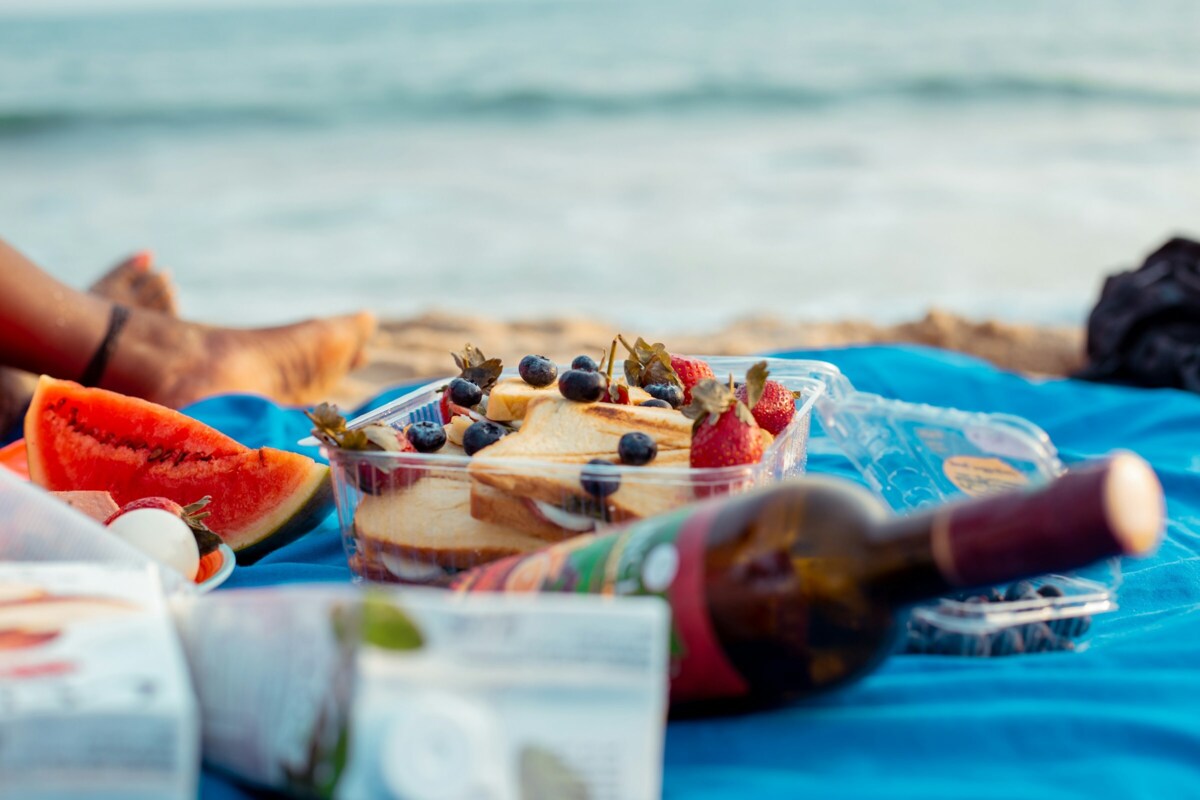The May holidays are just around the corner, and many are preparing for a well-deserved break abroad. Sunshine, adventure, and, of course, delicious food are on the horizon. While vacation is a time to relax and enjoy, staying mindful of your health goals can also be a challenge.
The good news? You don’t have to choose between total indulgence and total restriction. At IKARIA Clinics, we believe balance is key. With a few practical tips, you can savour every bite and still return home feeling energised and well.
Start your day the right way
A nutritious breakfast sets the tone for the day. Studies show that a balanced morning meal can help stabilise blood sugar levels and reduce cravings later on [1]. Opt for protein, fibre, and healthy fats—think Greek yoghurt with fruit and nuts, an omelette with vegetables, or whole-grain toast with avocado.
TIP: Eating well in the morning often leads to better food choices throughout the day.
Make smart choices when eating out
Vacations and dining out go hand in hand. You can still enjoy local cuisine while making smart choices. Choose grilled over fried, add a salad or veggies to your order, and ask for sauces or dressings on the side to control portion sizes [2].
TIP: Start with a salad or soup to curb your appetite before the main dish arrives.
Hydrate, hydrate, hydrate
Warm weather increases the risk of dehydration, which is often mistaken for hunger [3]. Keep a reusable water bottle with you, and aim to drink at least 1.5–2 litres of water daily. Alternate alcoholic drinks with water or sparkling water with citrus.
TIP: Drinking a glass of water before meals can help prevent overeating.
Snack mindfully
Yes, that gelato by the beach is part of the experience—but it doesn't need to be a daily habit. Swap some snacks for healthier options like fresh fruit, raw veggies with hummus, dark chocolate (in moderation), or a handful of unsalted nuts [4].
TIP: When you do indulge, slow down and enjoy it. Mindful eating boosts satisfaction.
Listen to your body
Vacations often disrupt your usual eating schedule. Try to eat only when you're truly hungry and stop when you're full. Studies suggest intuitive eating helps maintain a healthy weight and relationship with food over time [5].
TIP: It's okay not to clean your plate, honour your body’s signals.
Stay active without the gym
Activity doesn't have to be structured. Walk along the beach, bike through the countryside, swim in the sea, or try something new like paddleboarding. Regular movement supports digestion, improves mood, and helps balance out those vacation treats [6].
TIP: Aim for 30–60 minutes of light movement daily.
Indulge in moderation
You’re on holiday. Allow yourself to indulge in what you truly crave and skip what you eat just because the food is in front of you. Enjoy the fresh croissant, but maybe skip the fries at lunch. This kind of balance leaves room for both pleasure and well-being.
TIP: Choose your indulgences with intention and enjoy them fully, without guilt.
Final thoughts: balance is key
Healthy living doesn't take a holiday, but it doesn't have to be a burden either. With mindful choices and a flexible mindset, you can enjoy your holiday to the fullest and return home feeling vibrant and energised.
IKARIA Clinics
At IKARIA Clinics, we specialise in preventive health. Whether you're looking for expert nutritional advice, lifestyle coaching, or a complete health check-up, we're here to help you live with energy, vitality, and balance.
Start your journey toward optimal health. Let IKARIA Clinics support you in creating sustainable habits—so you can feel great, no matter the season.
Bibliography
Dhurandhar, E. J., Dawson, J., & Alcorn, A. (2017). The effectiveness of breakfast recommendations on weight loss: A randomised controlled trial. The American Journal of Clinical Nutrition, 106(2), 518–527. https://doi.org/10.3945/ajcn.1...
Zuraikat, F. M., et al. (2014). Eating behaviors and diet quality among restaurant consumers. Appetite, 83, 173–180. https://doi.org/10.1016/j.appe...
Jequier, E., & Constant, F. (2010). Water as an essential nutrient: The physiological basis of hydration. European Journal of Clinical Nutrition, 64, 115–123. https://doi.org/10.1038/ejcn.2...
Harvard T.H. Chan School of Public Health. (n.d.). Healthy Snack Ideas. Retrieved from https://hsph.harvard.edu/wp-content/uploads/2024/10/Food-Fun-Unit-6-Healthy-Snacking.pdf
Van Dyke, N., & Drinkwater, E. J. (2014). Relationships between intuitive eating and health indicators: Literature review. Public Health Nutrition, 17(8), 1757–1766. https://doi.org/10.1017/S13689...
Centers for Disease Control and Prevention (CDC). (2022). Benefits of Physical Activity. Retrieved from https://www.cdc.gov/physicalactivity/basics/pa-health/index.htm
This article is written with help from AI.



